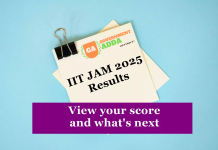Reading Comprehension Tips and Tricks for IBPS, SBI, SSC, RRB, RBI, Railway, LIC,IAS,SSB Exams.
Reading styles are subjective—there is no best method for approaching the passages. There are as many “systems” for reading the passages as there are test-prep books—all promoting their method, while contradicting some aspect of another. A reading technique that is natural for one person can be awkward and unnatural for another person. However, it’s hard to believe that many of the methods advocated in certain books could help anyone. Here we are listing down the best strategies to solve SBI PO,SSC and IBPS PO Reading Comprehension Questions.
Tips for solving comprehension
- Read the passage carefully. This is the basic of approaching. You need to read the comprehension very carefully. Do not read half and assume the rest (in case of lengthy paragraphs). For example, in a banking PO paper if certain views are passed on the present banking system DO NOT make the mistake of reading half the paragraph and assuming the rest. What you assume might be very much different than what is expected as answer.
- After 1st read, read the questions once. This is important. The questions will give you the idea from which part the questions are asked. If you do not know the exact answer to the question then you need to read that part of the passage again. It will make answering the questions easily and correctly.
- In the passage while reading you will find few words in bold. Make a note of those words. When you read the questions you will find questions relating to those words. Either synonyms or antonyms will be asked. If you do not know the word, read the line again. You will understand what the line is trying to convey and hence there is a possibility that the meaning (if not the exact dictionary meaning) will become clear to you and you will be able to answer its synonym or antonym.
- Usually another common question is to select a suitable title for the passage. For this you need to read and re-read the passage till the meaning is clear. We can hope that after 2 reads the meaning and the emotions of the passage somewhat becomes clear.
- The next common question is what is the author trying to convey through the passage or what is author’s take on the subject etc. Again, these questions will become clear on repeated reading of the passage. The options given in the answer will be very close to one another. Keeping that in mind you should be careful while marking your answer.
- In the descriptive papers (if it is offline) read the passage, read the questions and then mark the answers on the paper. This will save your time next time when you will be writing the answers in the space provided.
- Last but not the least, if you find the passage is too hard for you to understand.DO NOT attempt the tricky questions based on guess. If you cannot understand, leave the question and attempt the easier follow up questions. The synonym, antonym questions will be pretty easy. You will find one or two direct questions as well. I am saying this because in the exam you will not find so much time to devote on one question. If you do so, you will be leaving out a lot of other questions.
All the best.
Directions (Q.1-10): Read the following passage carefully and answer the questions given below.
A year after their formation, the States of Telangana and Andhra Pradesh continue to grapple with resource-sharing issues with respect to power, water and other assets. Andhra Pradesh without the revenue flow from Hyderabad (which accounted for 22 per cent of the total revenue of the undivided State) is in dire financial straits as the special status promised by the previous UPA government has proved to be elusive. As an ally of the BJP at the Centre, the Telugu Desam Party that rules Andhra Pradesh is hoping for a special financial grant. But that too appears to be a distant dream today as too many States are in the queue seeking such packages. As in the case of similar disputes among other States, water-sharing remains a contentious issue. While the people at large are reconciled to the post-bifurcation reality, it is the political grandstanding of the two governments that is really coming in the way of a harmonious coexistence between the two. For instance, the Telangana government in April went ahead and imposed its own motor vehicle tax, unmindful of concerns on the other side. Every single issue — be it the division of the secretariat premises, public sector institutions, State cadre officers or the High Court — has become a bone of contention.
Each time there has been a dispute, the two States have knocked on the doors of the Centre seeking mediation. But the truth is that beyond trying the persuasion route, New Delhi can do precious little on any of it. Andhra Pradesh has to find ways to mobilise resources to fund its ambitious infrastructure projects. Besides securing the promised quantum of funds from the Centre, Chief Minister N. Chandrababu Naidu has to explore the possibility of accessing funds from private and external sources to realise plans for the development of a capital region, and to build airports, seaports and smart cities. Hyderabad being retained as an integral part of Telangana has made all the difference for both States in terms of revenues, as it accounts for 99 per cent of the total IT and ITeS exports from the two States. The stark reality is reflected in the 2014-15 and 2015-16 budgets of the two governments. Telangana registered a revenue surplus of Rs.301 crore and Rs.531 crore, while Andhra Pradesh ended up with a deficit of Rs.6,064 crore and Rs.7,300 crore respectively. However, the challenge for the Telangana Rashtra Samiti government led by K. Chandrasekhar Rao is to ensure progress all across the State, particularly in the districts of Warangal, Adilabad, Karimnagar and Nizamabad, which have historically seen hardly any progress on the manufacturing front. The hinterland’s mainstay is in mining, poultry, food processing, dairy and farming. The way forward is to put behind the distrust and bitterness that preceded the bifurcation process, and get down to the real issues.
The passage is taken from ‘The HINDU’ Newspaper.
1. According to the passage why is Andhra Pradesh is in dire financial straits?
- Previous UPA government is not in power anymore.
- Telangana is performing better than Andhra Pradesh
- The strategies of AP government are not viable enough to ensure growth.
- Hyderabad is no more a part of AP which accounted to 22 percent of the total revenue of the state before bifurcation took place.
- None of these
2. Which of the following is true according to the passage?
A) Telangana government imposed motor vehicle tax in November.
B) Hyderabad is an integral part of Telangana has made all the difference for both States in terms of revenues
and accounts for 99 per cent of the total IT and ITeS exports from the two States.
C) With cooperation from BJP, the Telugu Desam Party that of Andhra Pradesh hopes for a special financial
grant.
- All A, B and C
- Only A and B
- Only B and C
- Only C and A
- None of these
3. Why does the author think that the dream of getting a special financial grant from the central government to the Andhra Pradesh Government will not be fulfilled easily?
- The alliance of Central Government and Telugu Desam Party of Andhra Pradesh is not strong enough.
- There are too many States who are waiting for similar grants from the Centre.
- The Centre has already granted the extra financial aid to the Andhra Pradesh Government.
- Only 2 and 3
- None of the above.
4. What does the author mean by the phrase “bone of contention”?
- Point of argument or disagreement.
- To take a stand.
- Something that continues to be undisputed.
- Being specific.
- None of the above.
5. Which of the following is opposite in meaning of the word “reconciled”?
- Reunite
- Synthesize
- Resolve
- Estrange
- None of these.
6. Which of the following is opposite in meaning of the word “quantum”?
- Amount
- Total
- Volume
- Budget
- None of these.
7. Which of the following is the similar in meaning of the word “contentious”?
- Controversial
- Agreeable
- Pacific
- Non Aggressive
- None of these
8. Which of the following is the similar in meaning of the word “hinterland”?
- Civilization
- Remote Area
- Metropolis
- Municipality
- None of these
9. Which of the following is the opposite in meaning of the word “harmonious”?
- Hostile
- Incongruous
- Discordant
- Peaceful
- None of these
10. What is ‘The stark reality’ of the two states that the author is talking about?
- Andhra Pradesh is performing better than Telangana in terms of revenue surplus.
- Andhra Pradesh accounts to 99 per cent of the total IT and ITeS exports.
- Andhra Pradesh is facing an extreme revenue deficit while Telangana registered a huge revenue surplus.
- Both 1 and 2.
- None of the above.
Answers:
- (4)
- (1)
- (2)
- (1)
- (4)
- (3)
- (1)
- (2)
- (3)
- (3)














